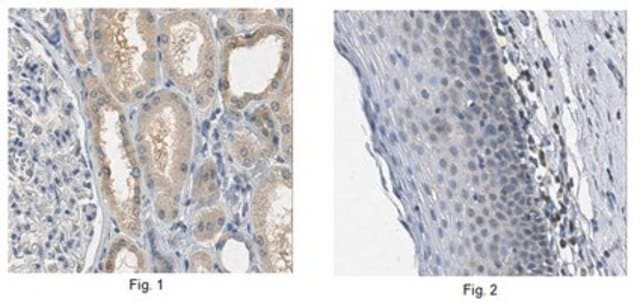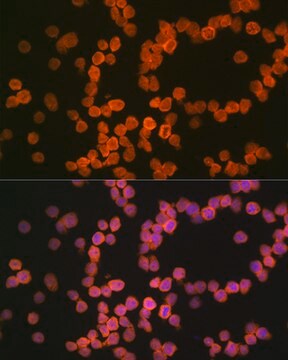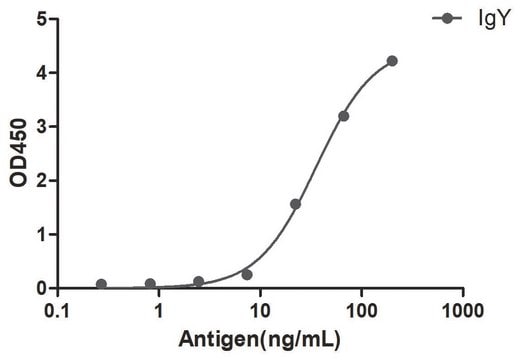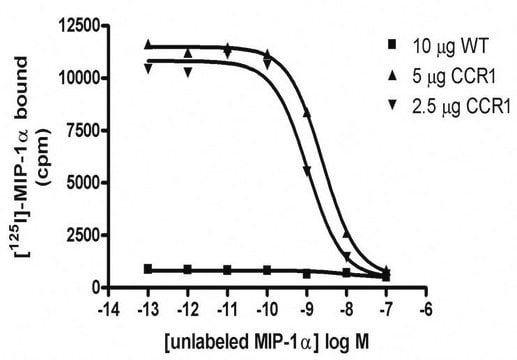MAB1476-I
Anti-Chymotrypsin (Hu Pancreas) Antibody
About This Item
Productos recomendados
biological source
mouse
Quality Level
conjugate
unconjugated
antibody form
purified antibody
antibody product type
primary antibodies
clone
CHYMO10-104.10, monoclonal
mol wt
calculated mol wt 28 kDa
species reactivity
human
packaging
antibody small pack of 100 μg
technique(s)
ELISA: suitable
immunohistochemistry (formalin-fixed, paraffin-embedded sections): suitable
isotype
IgG1
UniProt accession no.
shipped in
dry ice
storage temp.
-10 to -25°C
target post-translational modification
unmodified
Categorías relacionadas
General description
Specificity
Immunogen
Application
Immunohistochemistry: 1:1000.
Note: Actual optimal working dilutions must be determined by end user as specimens, and experimental conditions may vary with the end user
Physical form
Storage and Stability
Other Notes
Disclaimer
Not finding the right product?
Try our Herramienta de selección de productos.
Storage Class
12 - Non Combustible Liquids
wgk_germany
WGK 2
flash_point_f
Not applicable
flash_point_c
Not applicable
Certificados de análisis (COA)
Busque Certificados de análisis (COA) introduciendo el número de lote del producto. Los números de lote se encuentran en la etiqueta del producto después de las palabras «Lot» o «Batch»
¿Ya tiene este producto?
Encuentre la documentación para los productos que ha comprado recientemente en la Biblioteca de documentos.
Nuestro equipo de científicos tiene experiencia en todas las áreas de investigación: Ciencias de la vida, Ciencia de los materiales, Síntesis química, Cromatografía, Analítica y muchas otras.
Póngase en contacto con el Servicio técnico








